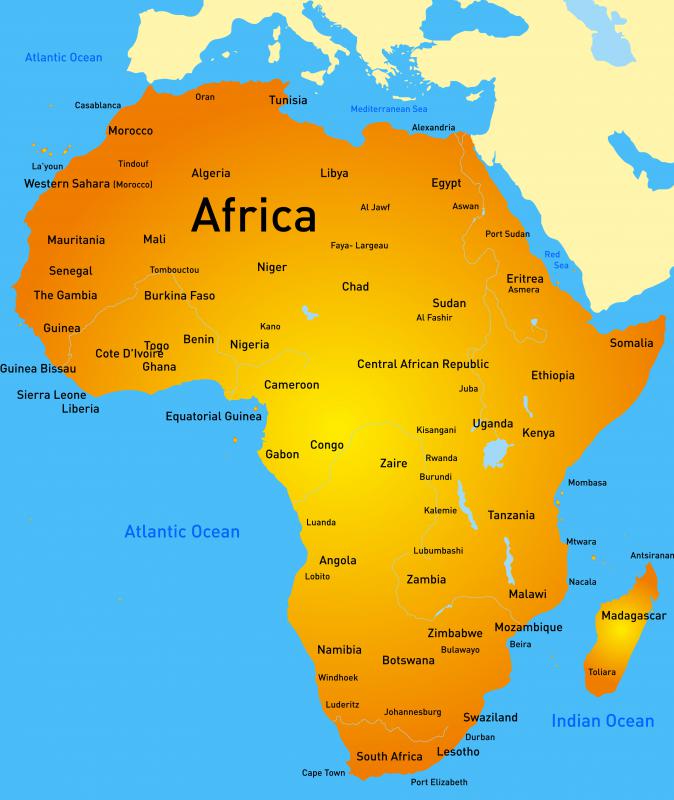At DelightedCooking, we're committed to delivering accurate, trustworthy information. Our expert-authored content is rigorously fact-checked and sourced from credible authorities. Discover how we uphold the highest standards in providing you with reliable knowledge.
What are Grains of Paradise?
Grains of paradise are peppery seeds from the Aframomum melegueta plant. They have been used in their native West Africa for centuries, and in Europe since at least the 800s. Today, they are commonly in use in Northern Africa as well, and less abundant in Europe. Stores that specialize in spices may carry them, and they can also be ordered through spice importers.
This spice is also known as alligator pepper, Guinea grains, or melegueta pepper. As the alternate names would imply, it has a slightly peppery flavor, but the taste is a bit more complex than that. It also tastes somewhat like coriander, ginger, and cardamom, with a citrus note and a scent that people sometimes describe as being very “floral.” It is milder than black pepper, but it still packs a kick, especially when applied in large amounts.

The parent plant is a leafy shrub that produces distinctive purple, trumpet-shaped flowers that develop into red pods. The seeds inside the pods start out reddish-brown, turning gray with age, and they are sold in both whole and ground form. As a general rule, the quality of the spice is better when whole grains of paradise can be obtained, allowing cooks to grind just as much as they need for each dish.

Aframomum melegueta prefers swampy environments, but it also likes warm weather. West Africa's climate is ideal for growing it, along with some other tropical spices, and grains of paradise was one of the earliest spices traded between Africa and Europe. The name was invented in the 14th century to make the spice seem more exotic, thereby driving up the price. It became very fashionable to replace black pepper, a more expensive spice, with this one for some time in the 15th century, but it have since become much more costly than black pepper.
There are many ways to use these seeds in cooking. Several West African dishes call specifically for this spice, with cooks using black pepper in a pinch when they cannot obtain it. It is also included in some African spice blends, and it can be used in dishes of Asian and European origin as well, for cooks who want a flavor somewhat more mild and complex than that of black pepper.
AS FEATURED ON:
AS FEATURED ON:












Discussion Comments
Grains of paradise are often found in various beers, too. It's easy to identify which ones as the brewer will often brag about using that particular ingredient in a beer. I'm not sure how exotic and rare the spice is, but brewers always talk it up like it is the most desirable grain on the planet (that's called good marketing, I do believe).
Post your comments